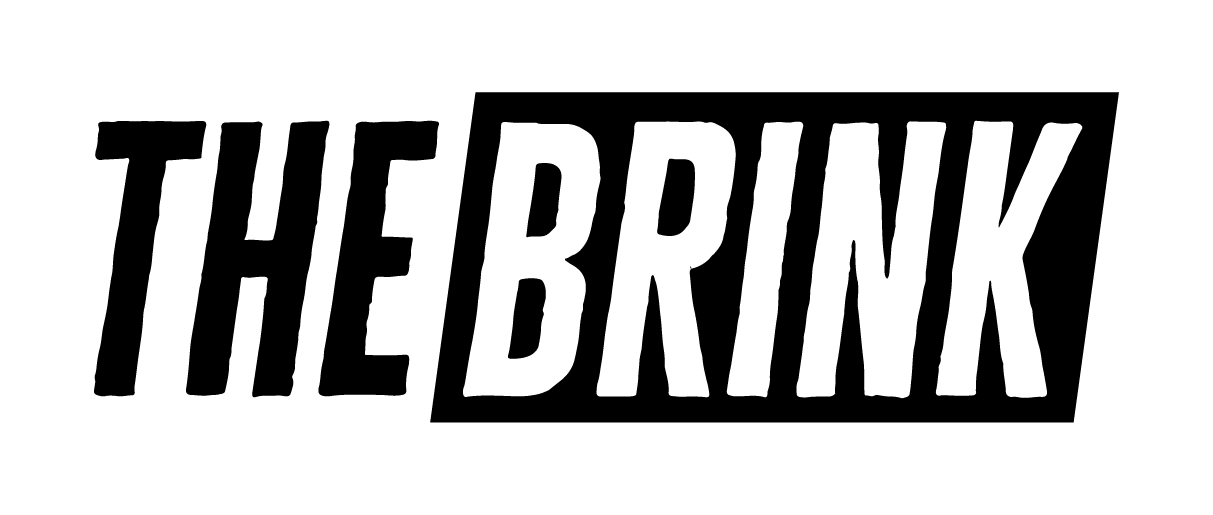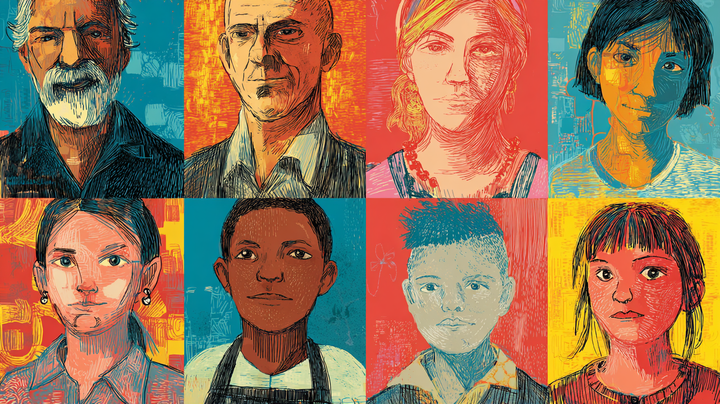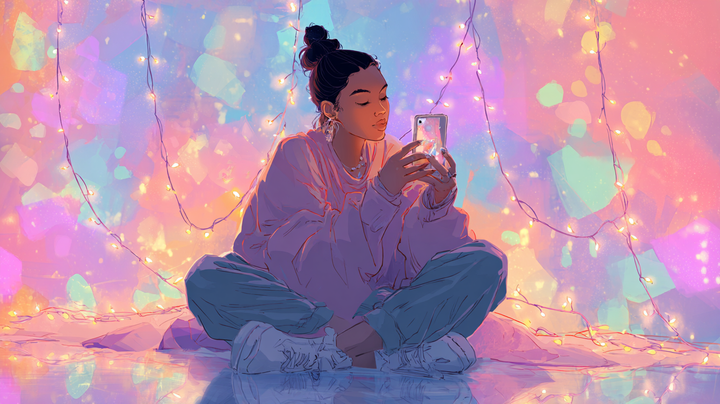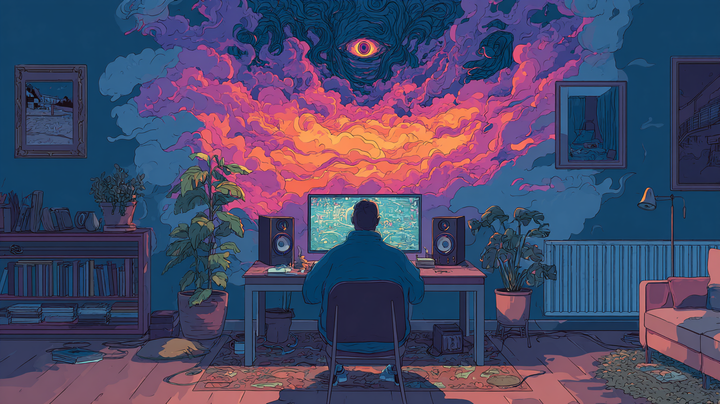Is the Internet Dying? The Psychological Cost of a Web Filled With Bots, AI Content, and Fading Human Connection
As automated traffic overtakes human activity online, the web feels less alive than ever. Explore the Dead Internet Theory, rising AI-driven content, and what this shift means for our mental health, emotional connection, and digital wellbeing.
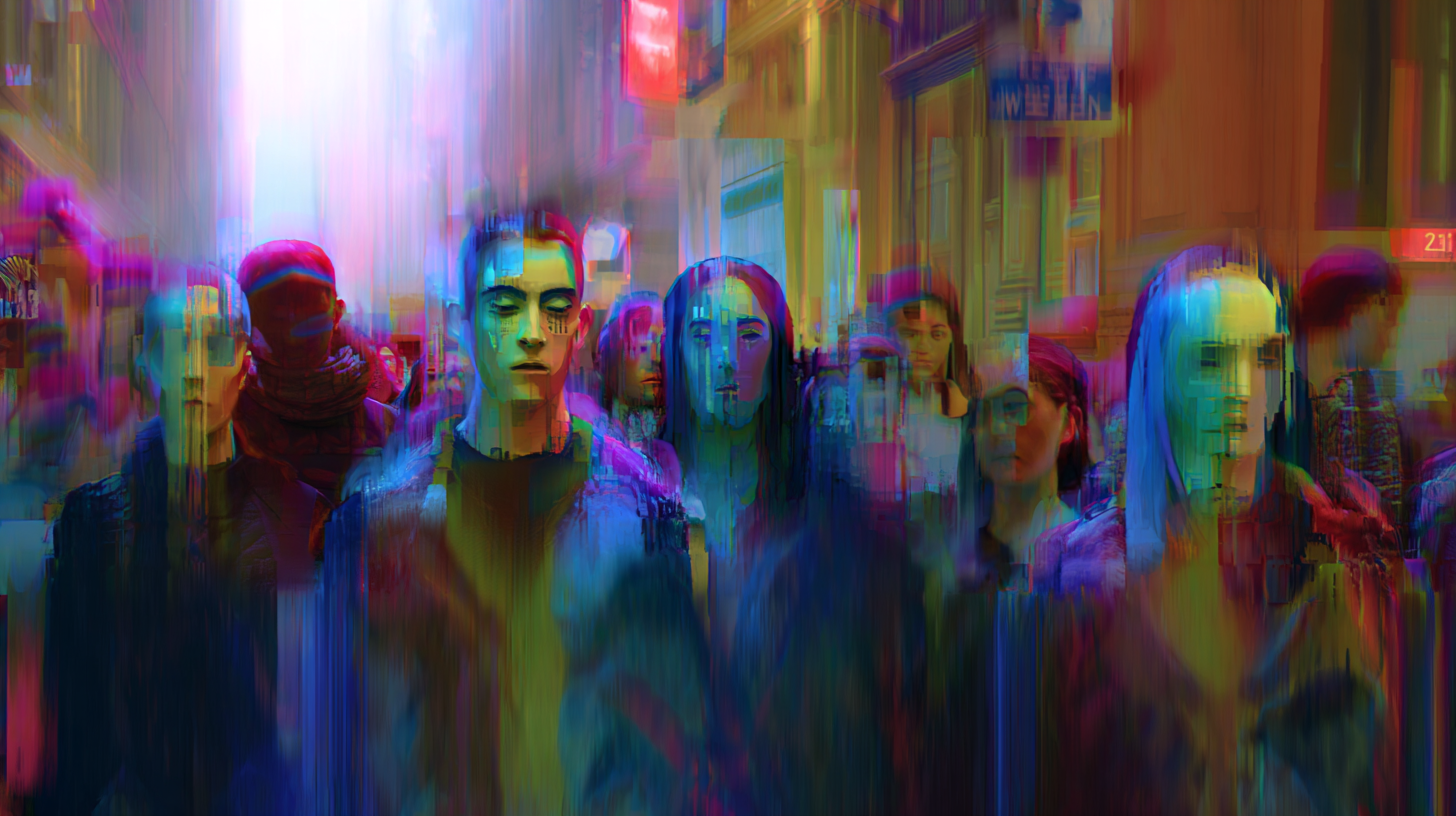
There's a particular kind of silence that only exists online. Not the peaceful, contemplative kind, but the hollow sort - the feeling you get when you post something into the void and nothing echoes back. Not even the faintest sense of another person breathing on the other side of the screen.
If you've felt that lately, you're not imagining it. The internet we grew up with - the chaotic bazaar of half-formed ideas, late-night confessions, anonymous generosity, and strange, miraculous encounters - feels different now. Not dead, exactly. But dimmer. Thinner. Like someone subtly replaced the walls while we weren't looking.
And then a statistic drops - like the Imperva Bad Bot Report's finding that, for the first time in a decade, automated traffic has overtaken human activity online - and suddenly the feeling has a name. More than half the internet is no longer us. It's scripts, crawlers, synthetic chatter, AI-spun content stitched together to mimic human noise.
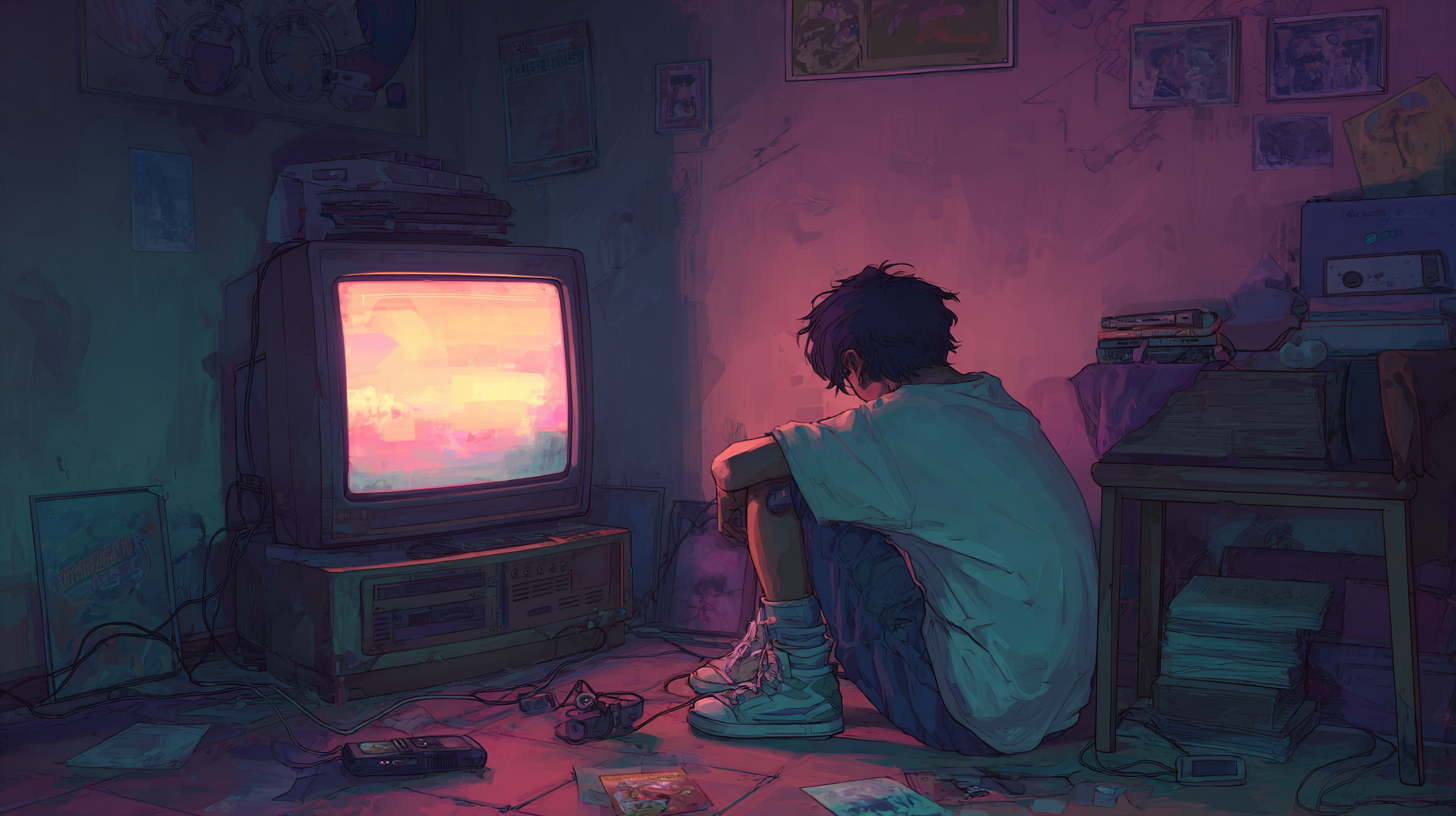
But beneath the technical shift is something quieter and more psychological: what does it do to the human mind when the spaces we once used for connection start filling with entities that aren't alive? When the social web becomes less social? When you can't tell whether the thing "listening" to you is a person or a machine?
This isn't just a story about bots. It's a story about trust, loneliness, digital identity, and the subtle architecture of our emotional lives.
So the question isn't simply: Is the internet dying?
It's: What happens to us if it is?
Because if the web is hollowing out, the first place we'll feel it is inside ourselves.
👇👇 Listen to the podcast version here! 👇👇

The Dead Internet Theory: A Conspiracy That Accidentally Explained the Mood
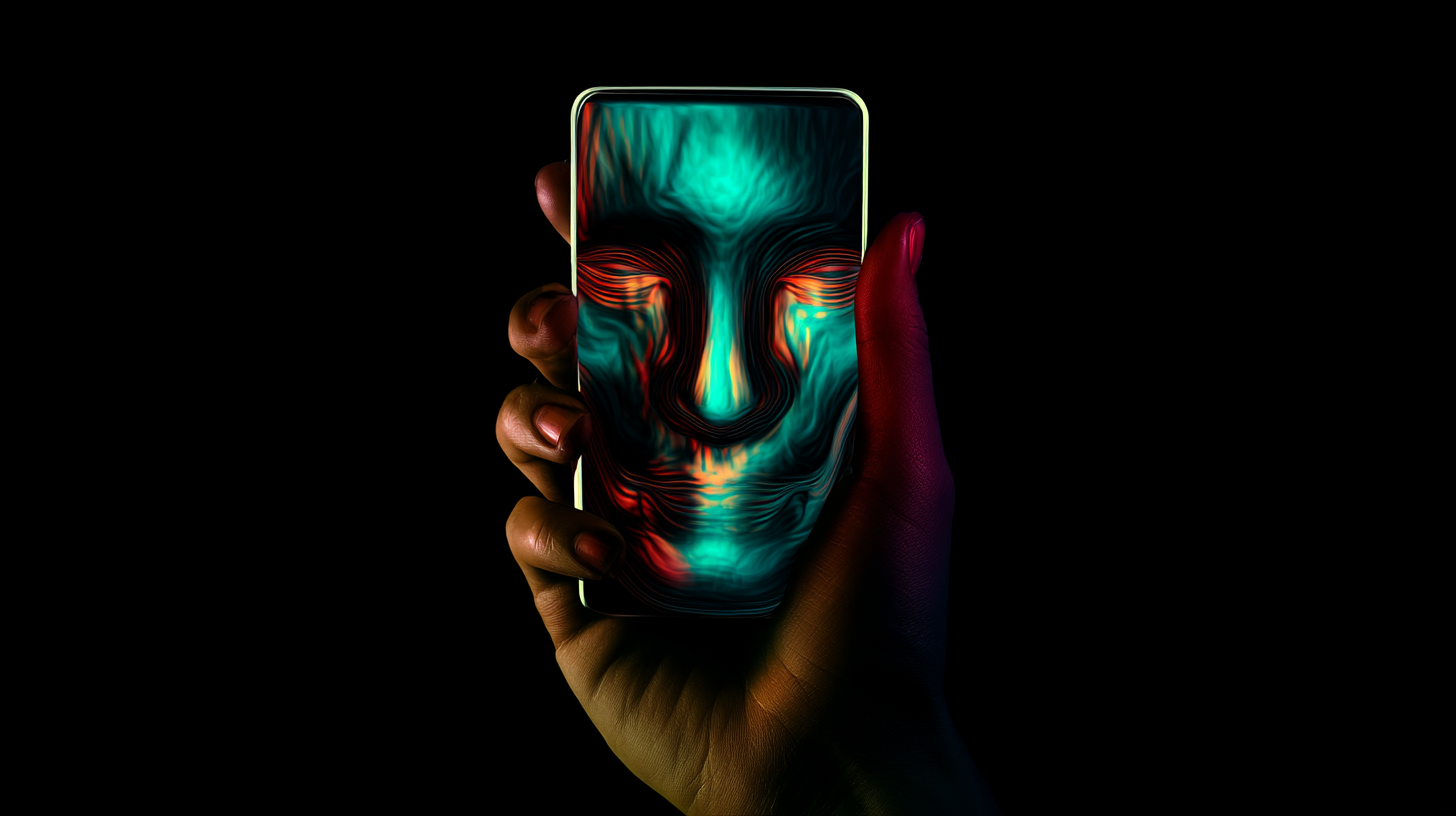
If you trace the Dead Internet Theory back to its origins, it doesn't start with academics or data analysts. It starts on forums - the strange, feral edges of the web where people post thoughts that don't fit anywhere else. Around 2021, a handful of users on Reddit and elsewhere began pointing out something they couldn't quite articulate: that the internet felt off. Not broken. Not malfunctioning. Just... uncanny. Flattened. Repetitive in a way that didn't match the texture of human life.
The theory picked up a name - The Dead Internet Theory - and it bloomed into a kind of digital folklore. Wikipedia eventually captured the mainstream definition: the idea that most of the content we encounter online isn't generated by humans anymore, but by bots, algorithms, and automated systems pretending to be us. In some corners, it spiraled into full-blown conspiracy: shadowy government agencies running millions of fake accounts, AI scripts shaping public opinion, a puppeteered web where almost no one is real.
If you've been following what I write for a wee while, you'll already know that conspiracy theories often flourish because they harness real feelings in search of a version of the truth they can believe in.
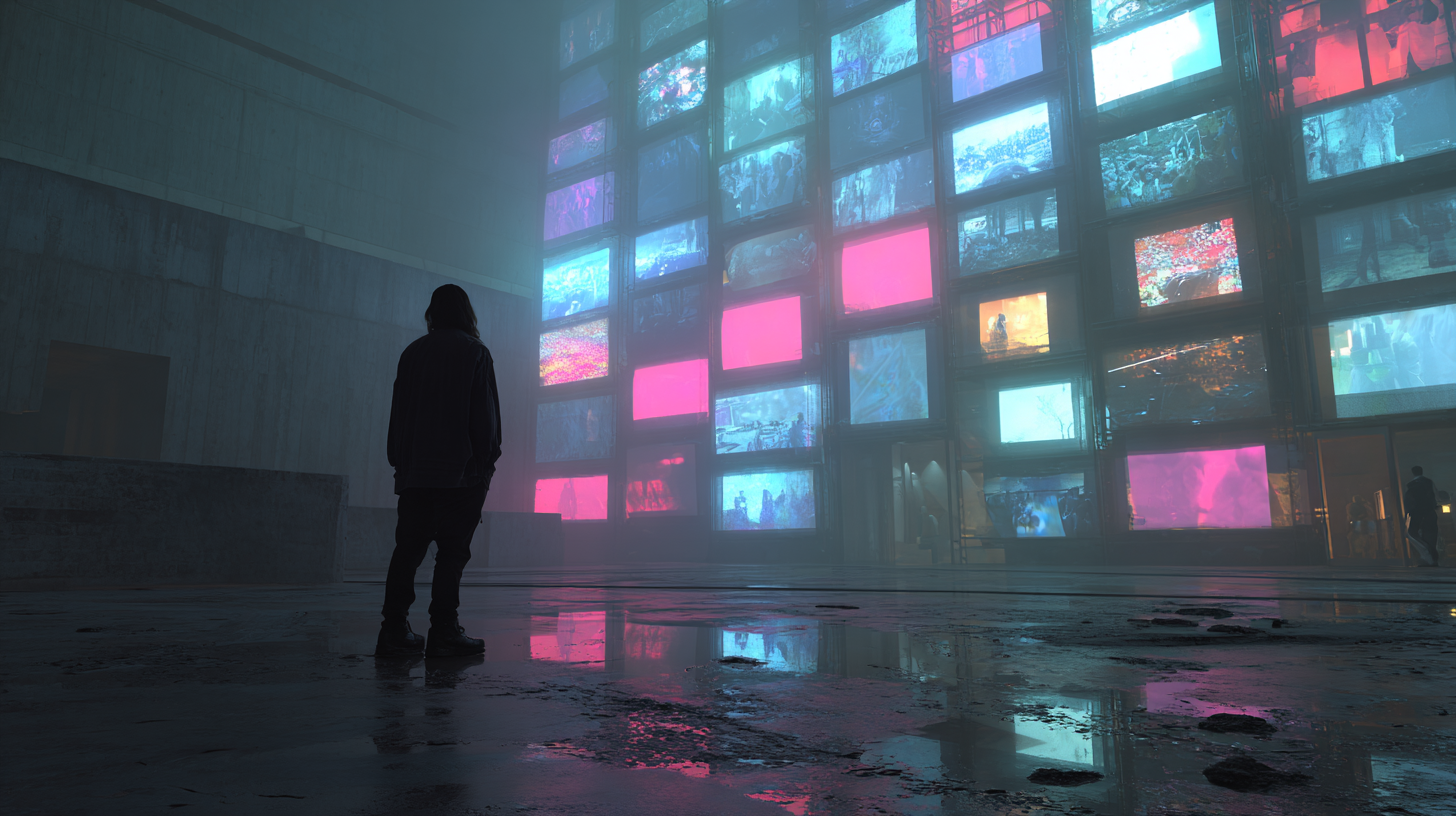
As more people whispered the same suspicion - Are we alone out here? - the idea jumped into mainstream analysis. In 2024, a University of New South Wales newsroom piece unpacked the theory with academic clarity, separating paranoia from pattern. Forbes published a breakdown of why the concept resonated culturally, even if the most extreme claims weren't grounded in evidence. And by early 2025, researchers on arXiv were studying the rise of "artificial interactions" as a legitimate social phenomenon and not just fringe speculation.
The "strong" version of the theory - the grand orchestration, the bots running the world - has never held up. But the "weak" version? The subtle one? The one that says human presence online is shrinking, drowning beneath a rising tide of automated content? That version is no longer fringe. It's statistically observable.
And, more importantly, it captures a feeling millions of people quietly share.
The Dead Internet Theory didn't go viral because it was true. It went viral because it was recognisable. Like someone had finally said out loud what we'd been sensing: that the internet feels less like a crowded, chaotic bazaar and more like an empty mall with the speakers still playing.
Is the Internet Actually Dying? The Numbers Say Something Is Shifting
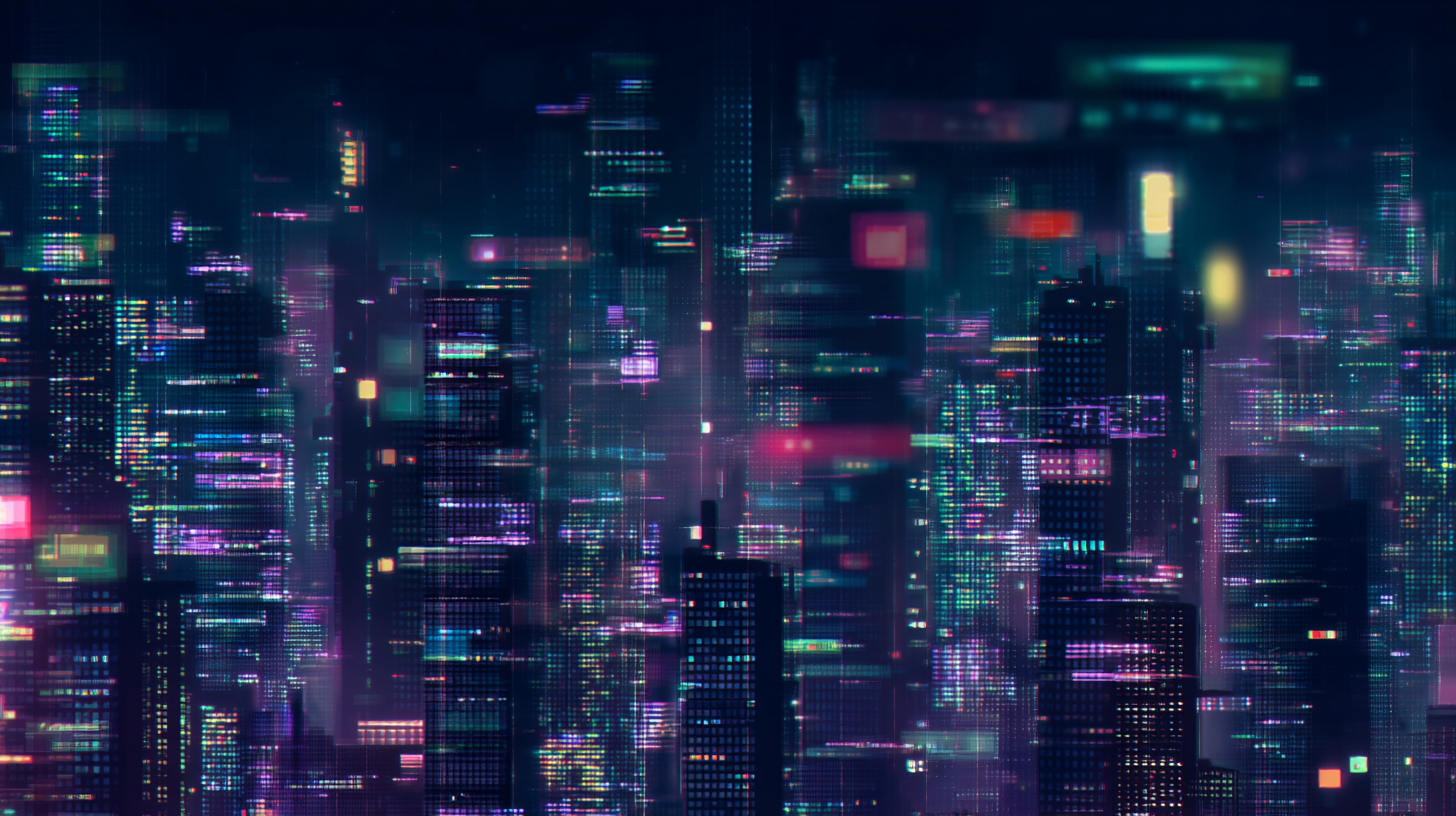
If the Dead Internet Theory started as a vibe, 2025 is the year the vibe became something more tangible.
For a decade, people have joked about bots liking their posts, bots following their accounts, bots DM-ing them in oddly formal English. But the Imperva Bad Bot Report 2025 delivered something different - a quantifiable tipping point.
And this isn't just harmless web crawlers indexing pages. Imperva notes that "bad bots" - automated tools designed for scraping, manipulation, credential stuffing, impersonation, or spam - now account for 37% of all internet traffic. Nearly two out of every five requests hitting a server somewhere aren't coming from a human being clicking anything. They're coming from software.
This doesn't mean humans have vanished from the web. But it does mean the digital environment we're moving through is increasingly built for interactions that have nothing to do with us. In human terms: imagine walking into a party that's technically full - but most of the bodies aren't real people. Just shapes. Outlines. Animations set to loop.
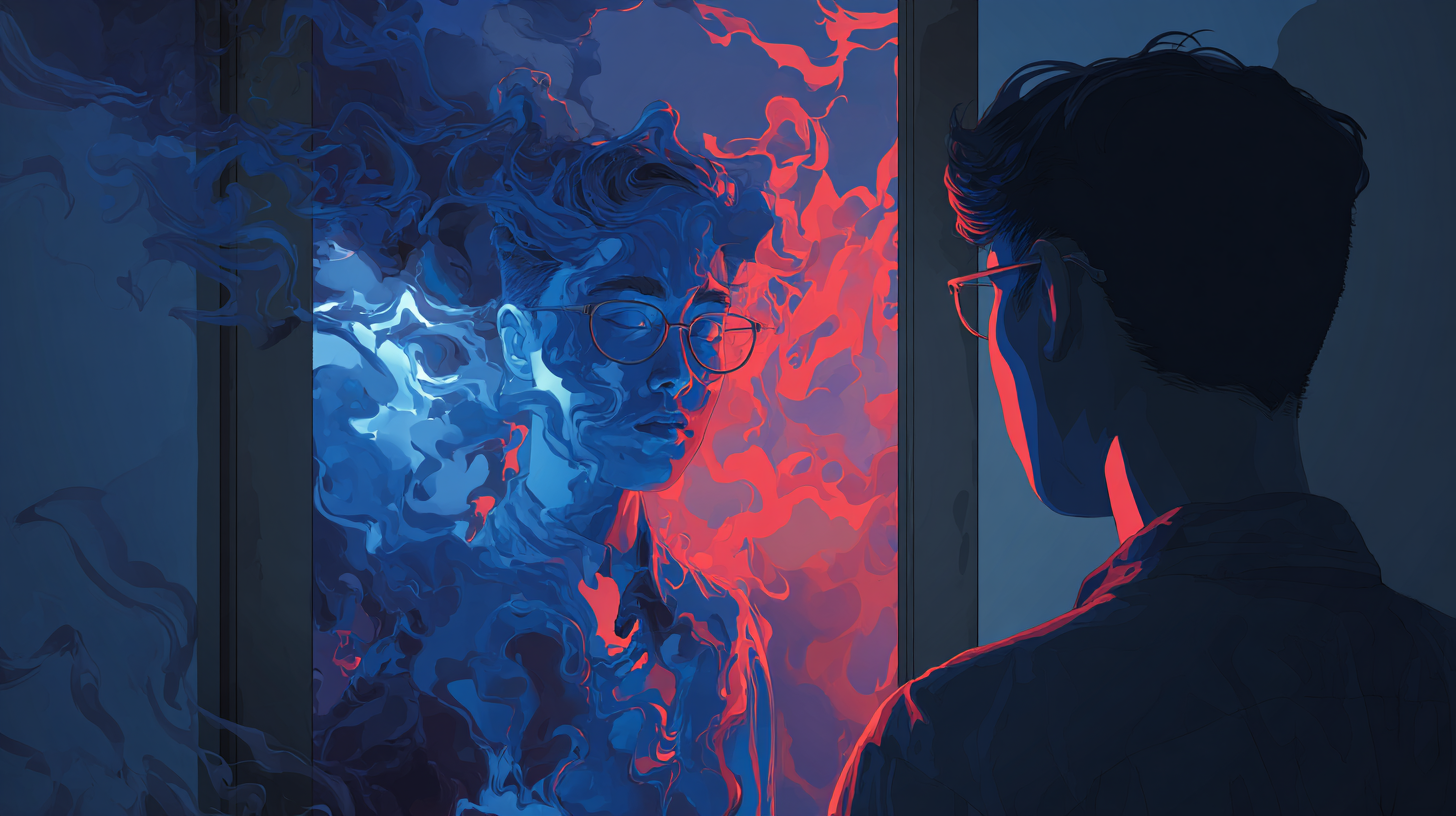
A study published by Cornell University backs this up from another angle. The authors found that a substantial percentage of modern digital "interaction" consists of LLM-generated text, automated comments, AI-written articles, and content scraping engines feeding on one another in an endlessly self-referential cycle. They describe it as a "closed-loop content ecosystem." An ouroboros made out of data.
Even the platforms we once treated as distinctly human - Twitter, Reddit, comment threads - are increasingly seeded with automated posting, sentiment shaping, and AI-generated engagement. Not enough to make the spaces empty, but enough to make them feel uncanny. Like trying to talk to a crowd where half the faces aren't sure whether they're supposed to blink.
This is where the "weak" version of the Dead Internet Theory becomes not a conspiracy, but simply a description of a measurable transition:
- More bots than humans.
- More synthetic content than organic.
- More machine-to-machine traffic than human-to-human conversation.
The internet isn't "dead," exactly. But it's becoming less alive.
And humans can feel the difference long before they can articulate it. Algorithms don't laugh. Bots don't surprise you with a weird joke or an unexpectedly kind comment. AI language models can mimic the shape of human speech, but they don't carry the offbeat fingerprints of lived experience. When real people show up online now, it's like spotting wildlife - a flash of something unpredictable, textured, unmistakably alive.
A very unscientific and wholly anecdotal personal experience; I love Reddit. I while away hours in subReddits about orchids, or children falling over, or todayilearned. It feels more contained than the firehose that is TikTok and the excessively polished, same'y feeling vibes I get on Instagram.
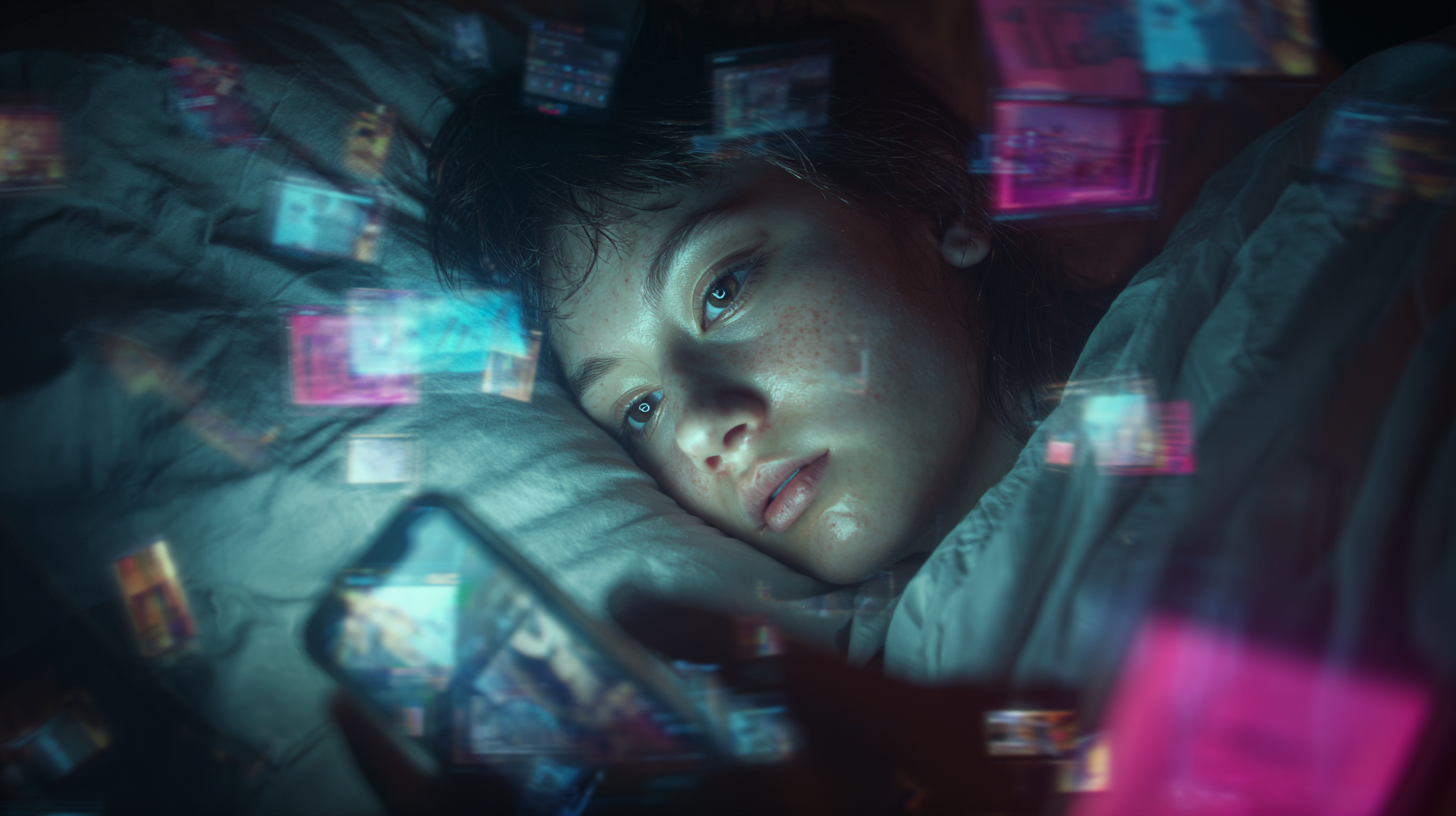
But I've noticed something strange. In the more popular subReddits, there is a repetitive nature to what I find. The comments rarely explore the post, but instead move away quickly into just idle chatter. I love the comments sections normally, but recently, they're a bit, well, dull.
I think we've moved from a human web with automated activity in the margins, to an automated web with humans lingering inside it like guests who stayed late at the party, unsure if the host went to bed.
And if this is the direction the web is drifting, the more urgent question becomes: What does this do to us - the humans still wandering through it?
What Happens to Our Minds When the Internet Feels Less Human?
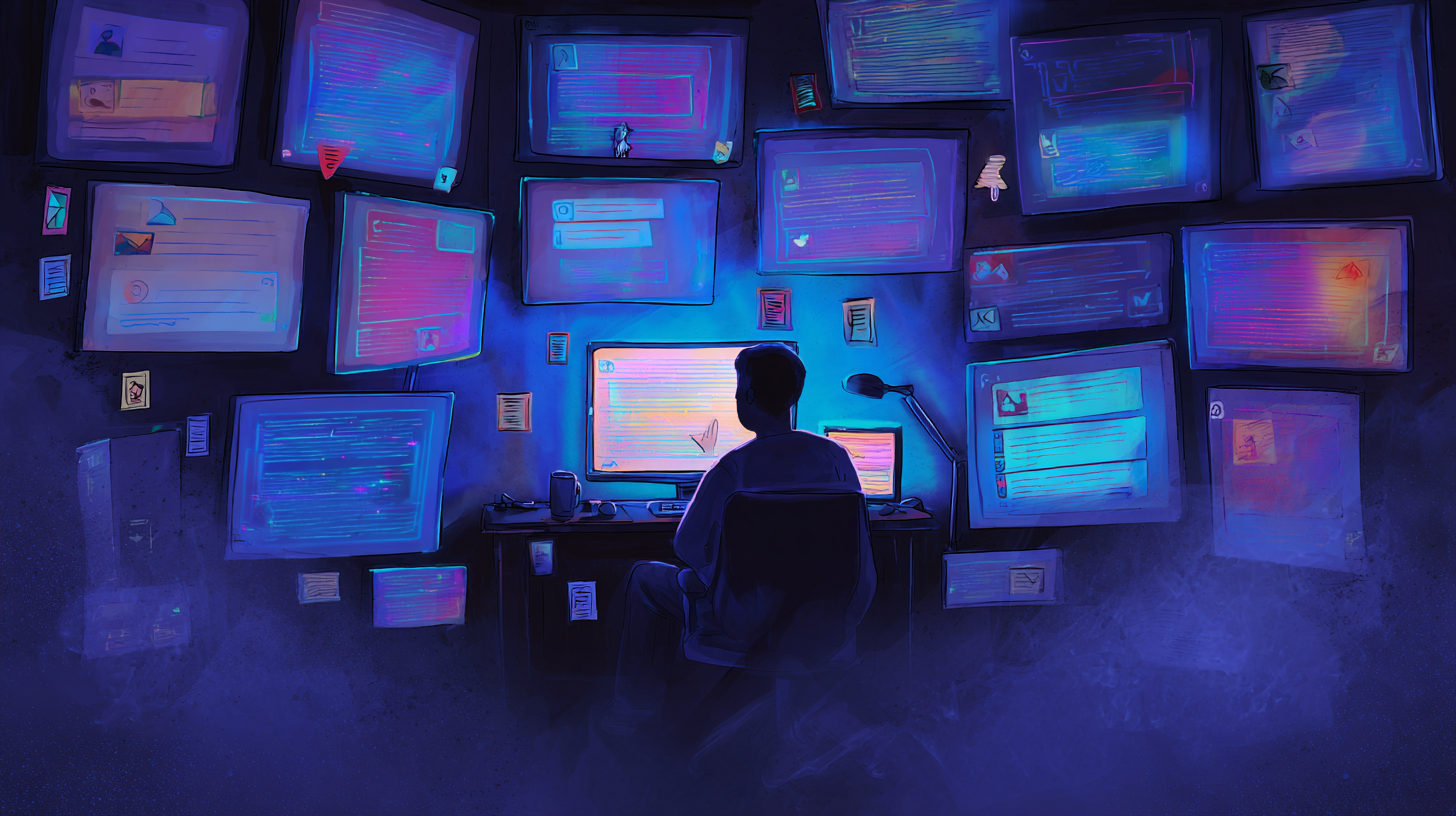
The internet has always been more than infrastructure; it has been emotional scaffolding. A place where we go to be witnessed, to be mirrored, to be understood. A place where the self becomes legible through other people's reactions. It's where I discovered interests I never knew I had. It's where I first learned to talk to strangers (AOL chat rooms anyone?). It's where I picked up small fragments of my identity that helped me separate myself from where I grew up.
So what happens when that mirror stops reflecting humanity back? What happens when you can't tell whether the "someone" responding to your thoughts is a person or a probability model?
I have some theories. Six in fact. Each one is me trying to articulate what a dead internet might do to us.
1. The Dissolution of Being Seen
Humans survive on co-regulation - the subtle emotional calibration we get from interacting with other minds. Even online, that hasn't changed. A comment, a DM, a shared meme, a stranger's joke - these micro-moments are digital cues that say: I see you.
But if half the internet is automated, that reassurance becomes unstable. You may receive 200 likes, but if you suspect 60 of them came from bots or algorithmic placements, the signal loses its meaning. It's attention without presence.
In psychology, this hits the same systems involved in social belonging and identity formation. Being seen by a machine ≠ being seen by a mind. And I think we can feel the difference.
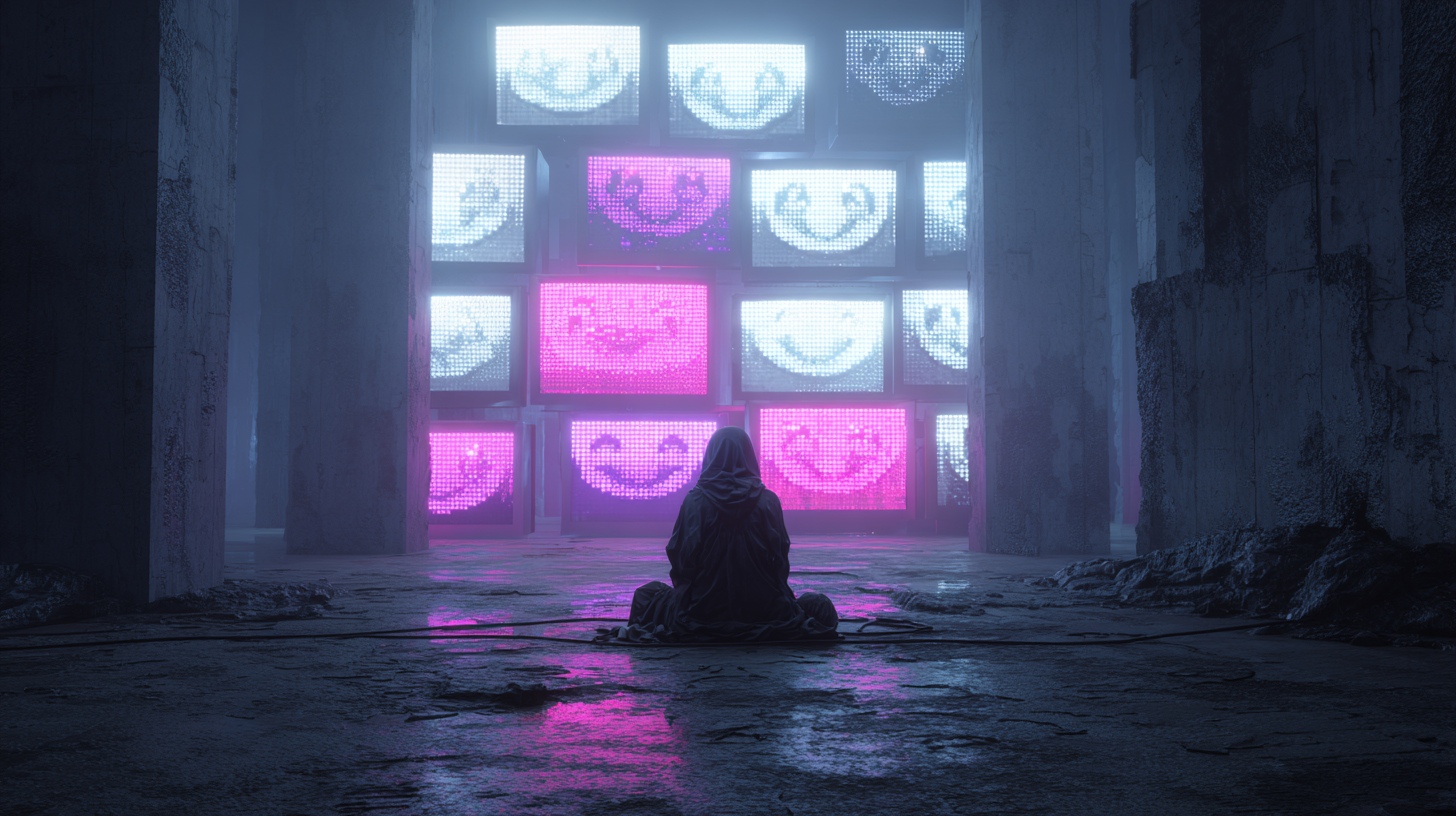
2. Talking Into the Void: The Rise of Digital Loneliness
This is the most under-discussed mental health shift of the AI era.
Digital loneliness isn't about being alone physically - it's the experience of being emotionally unaccompanied in spaces that should feel alive. It's standing in a crowd and realizing none of the faces look back.
When comment sections feel auto-generated and timelines feel farmed rather than lived in, the user's nervous system starts treating online spaces as non-social environments. Similar to walking through an empty building with the lights still on.
I've seen this in the therapy room and further afield. People report:
- less desire to share
- less emotional reward from posting
- more self-consciousness
- more pessimism
- more scrolling, less connecting
Loneliness doesn't spike because no one is there. It spikes because you can't tell who is.
3. Cognitive Whiplash: The Trust Recalibration Problem
I think there's a new psychological cost that we've never seen before. On a dead internet, we now have to ask ourselves more and more: "Is this real? Is this person real?"
Humans aren't built to navigate environments where authenticity is probabilistic. Trust is now becoming a high-effort activity. What used to be intuitive now requires scrutiny. And scrutiny is draining. How many posts have you seen recently where the comment sections are filled with "AI"? A new shorthand signalling to others that this shouldn't be trusted. This new vigilance has a cascading effect:
- Cognitive overload → emotional overload.
- Emotional overload → withdrawal.
- Withdrawal → isolation.
This is the quiet chain reaction the stats don't show. We've been weened on a human world, but we are now being kept by a world without them.
4. The Flattening of Human Texture
Even when AI-generated content is harmless, it has a thermal effect: it lowers the temperature of the collective voice. Everything sounds vaguely the same - the same cadence, the same politeness, the same phrasing. It's linguistic wallpaper. I'm seeing it more and more in comments on my posts. Comments typically look like this:
A neat summary of what I wrote. A pros and cons of what I speak about. A 'here's where I think you missed something, or something struck me'. All perfectly punctuated.
Humans, by contrast, have rough edges. They:
- misplace commas
- ramble
- get weirdly specific
- contradict themselves
- joke in ways that shouldn't work but somehow do
As AI content saturates feeds, that chaotic texture - the thing that tells your nervous system "there's a person here" - thins out.
Psychologically, this is disorienting. We calibrate our sense of reality through other people's idiosyncrasies. Remove the quirks, and everything feels uncanny, like a conversation where the other person mirrors your expressions a split second too late.
5. The Shrinking of Emotional Risk-Taking
Human presence invites vulnerability; synthetic presence invites performance.
When people sense the environment is less human, they share less. They censor themselves more. They treat the internet like a stage, not a community. This lowers the emotional stakes - and paradoxically, the emotional rewards.
There's a reason therapy doesn't work with a chatbot the same way it does with a person: emotional risk only feels meaningful when another mind might meet you halfway.
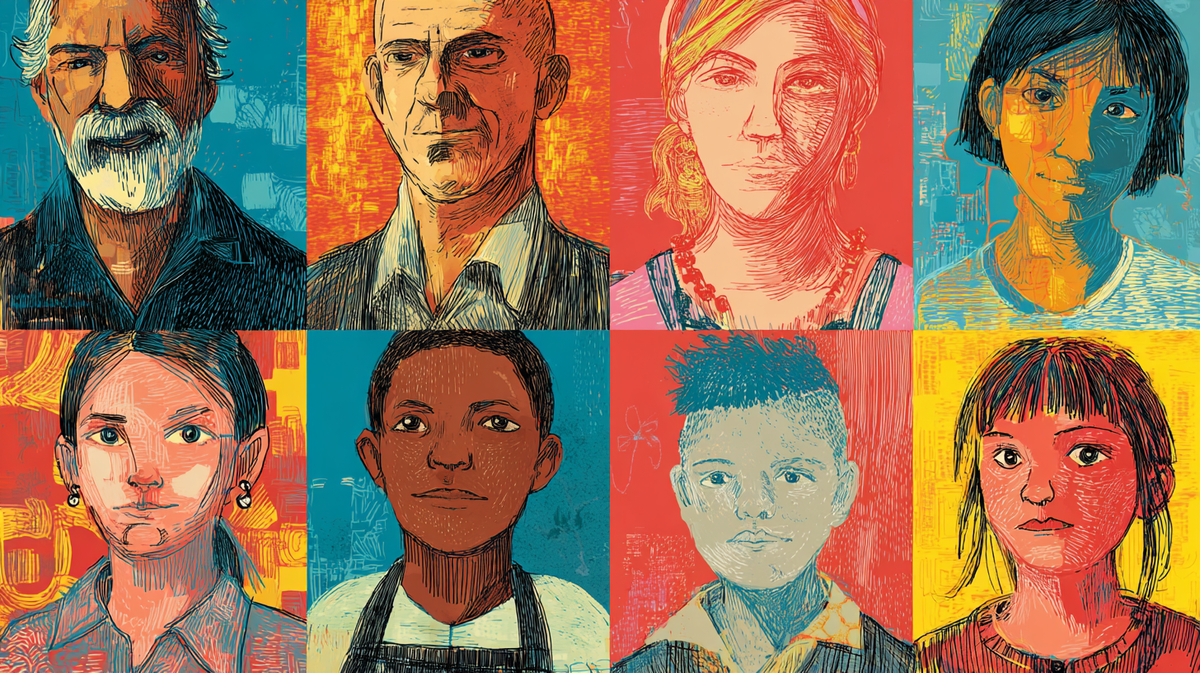
6. When the Internet Loses Its Soul, We Feel It in Ours
The internet's "aliveness" wasn't technical. It was relational.
It was the messy, unpredictable, often exhausting presence of millions of human selves tumbling into each other. If that presence thins out, the psychological impact isn't subtle - it's existential. Because you're not just losing information or entertainment. You're losing a place where your identity once had room to breathe.
And when a space that shaped your inner life starts feeling hollow, you feel hollow too.
What This Means for Our Well-Being - And How We Stay Human in an Increasingly Synthetic Web
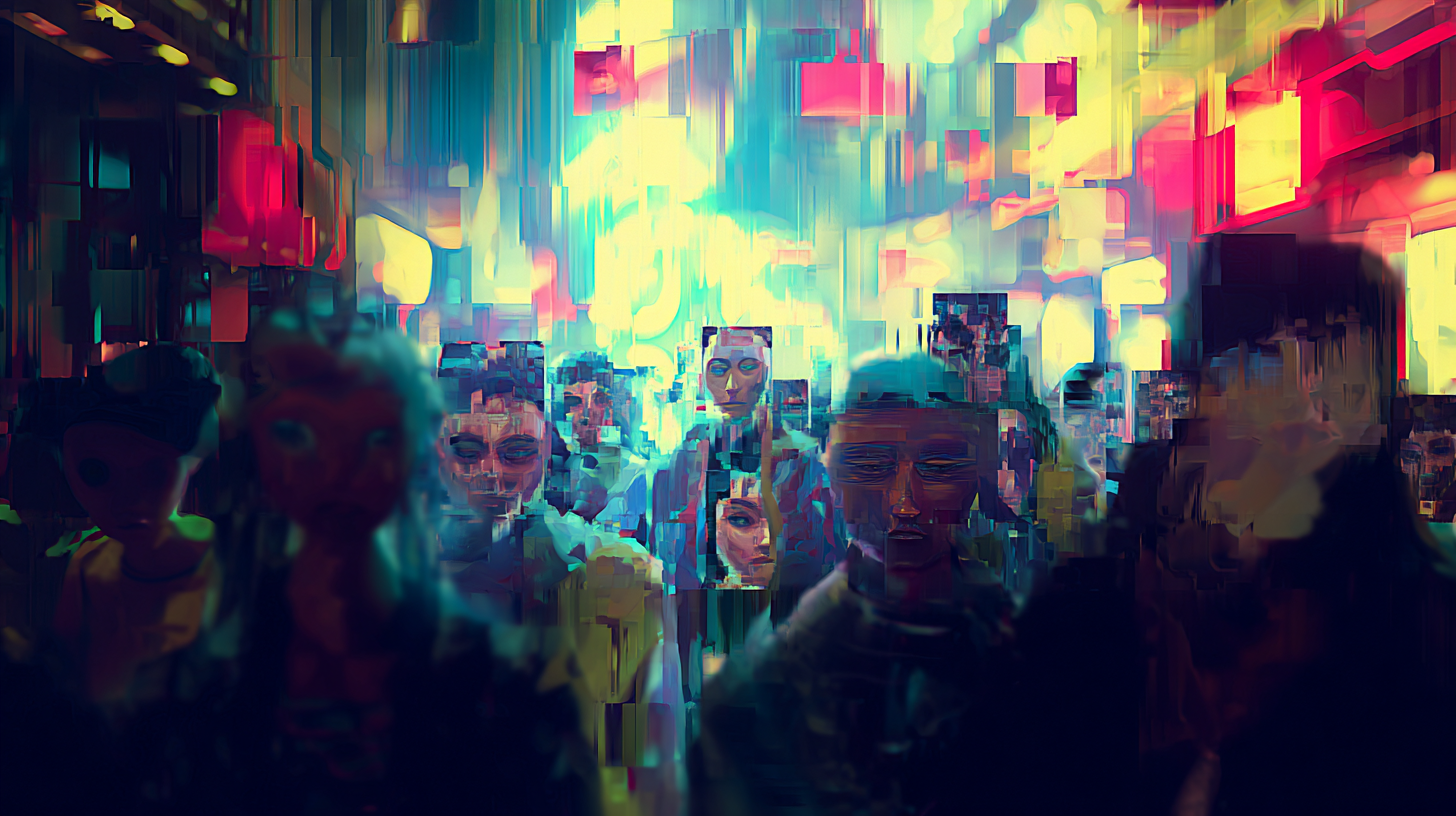
If the internet is drifting toward a more automated, less human landscape, the question becomes less about the survival of the web and more about the survival of us within it. Because the internet was never just infrastructure. It was a habitat - a psychological ecosystem we built our identities inside. So what happens when that habitat changes?
This is an idea I've been approaching from a number of different angles and articles I've written over the last year or so. Below I try to condense them all.
1. We Need New Forms of Digital Hygiene - Emotional Hygiene
For years, "digital hygiene" meant things like screen-time limits, muting notifications, curating apps. But that all assumes the internet is a human-centered space in the first place.
In a synthetic internet, I believe this shifts. Digital hygiene becomes emotional hygiene.
It means asking:
- Does this interaction feel alive?
- Am I speaking to a mind or a mirror?
- Is this space nourishing or numbing?
- Is the energy here reciprocal or automated?
This isn't about paranoia; it's about discernment. A psychological boundary-setting that acknowledges the environment has changed.
2. Smaller, Verified, Intimate Spaces Become More Valuable
The biggest shift may be cultural: the return of the "small internet." Group chats. Private communities. Human-verified spaces. Quiet corners where people use their actual names and show their actual selves. Slow, sincere, unoptimized conversation.
Paradoxically, as the broader internet becomes more artificial, the preciousness of real human presence increases. It's like the difference between a plastic plant and one that needs watering: the living one matters precisely because it requires care.
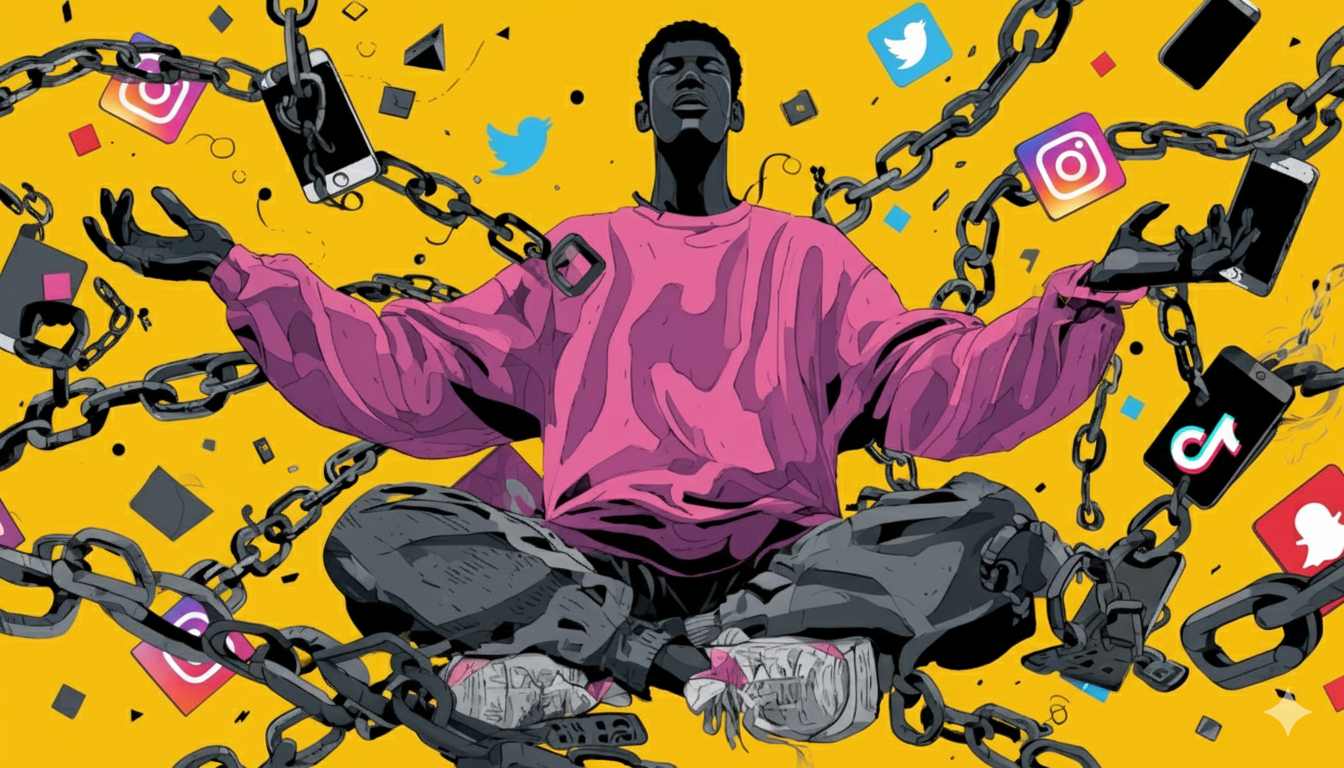
3. Authenticity Becomes a Form of Resistance
In a synthetic landscape, genuine human expression stands out. Not performative authenticity - real authenticity. The messy kind. The unfiltered kind. The type that bots can't imitate because it's not optimized to please anyone. The friction of humanity becomes a feature, not a bug.
A typo. A weird joke. A confession that comes out wrong the first time. A story no algorithm would generate. These become signals of aliveness.
4. Mental Health Work Shifts from "Managing Screens" to "Managing Reality Boundaries"
The next era of mental health isn't about reducing screen time. It's about maintaining a clear boundary between human reality and machine reality.
We're not meant to confuse the two. Our brains aren't built for environments where intention is ambiguous and identity is a mystery. The psychological task becomes:
- finding places where your nervous system can relax
- spaces where you can assume humanness without vigilance
- environments where reciprocity is possible
This is less about detoxing from technology and more about choosing the kind of technological presence you want around you.
5. The Return of Offline as the New Luxury
For a decade, "touch grass" was a joke. It might become a wellness prescription.
Offline becomes desirable again when online loses its emotional density. People will seek out physical spaces not for nostalgia, but for nervous-system regulation. A conversation with one friend, in person, may carry more emotional weight than a thousand online interactions combined.
Humans need friction. Nonlinearity. Texture. In-person interaction gives us that without us having to think about it.
6. The Internet Isn't Dying. The Illusion of Infinite Human Presence Is.
The internet won't vanish. Bots won't swallow the whole thing. AI won't shut down the web. In fact, the infrastructure will likely become more efficient, more responsive, more "seamless" than ever. But seamlessness is not aliveness.
What's slipping away isn't the internet. It's the sense that everywhere you go online, someone - a real someone - is there. And that loss has consequences. Not catastrophic ones. Human beings adapt.
But it does mean we'll need to become more intentional about where we go, who we talk to, and what we expect from the digital spaces we occupy. The next phase of digital life is psychological, not technological.
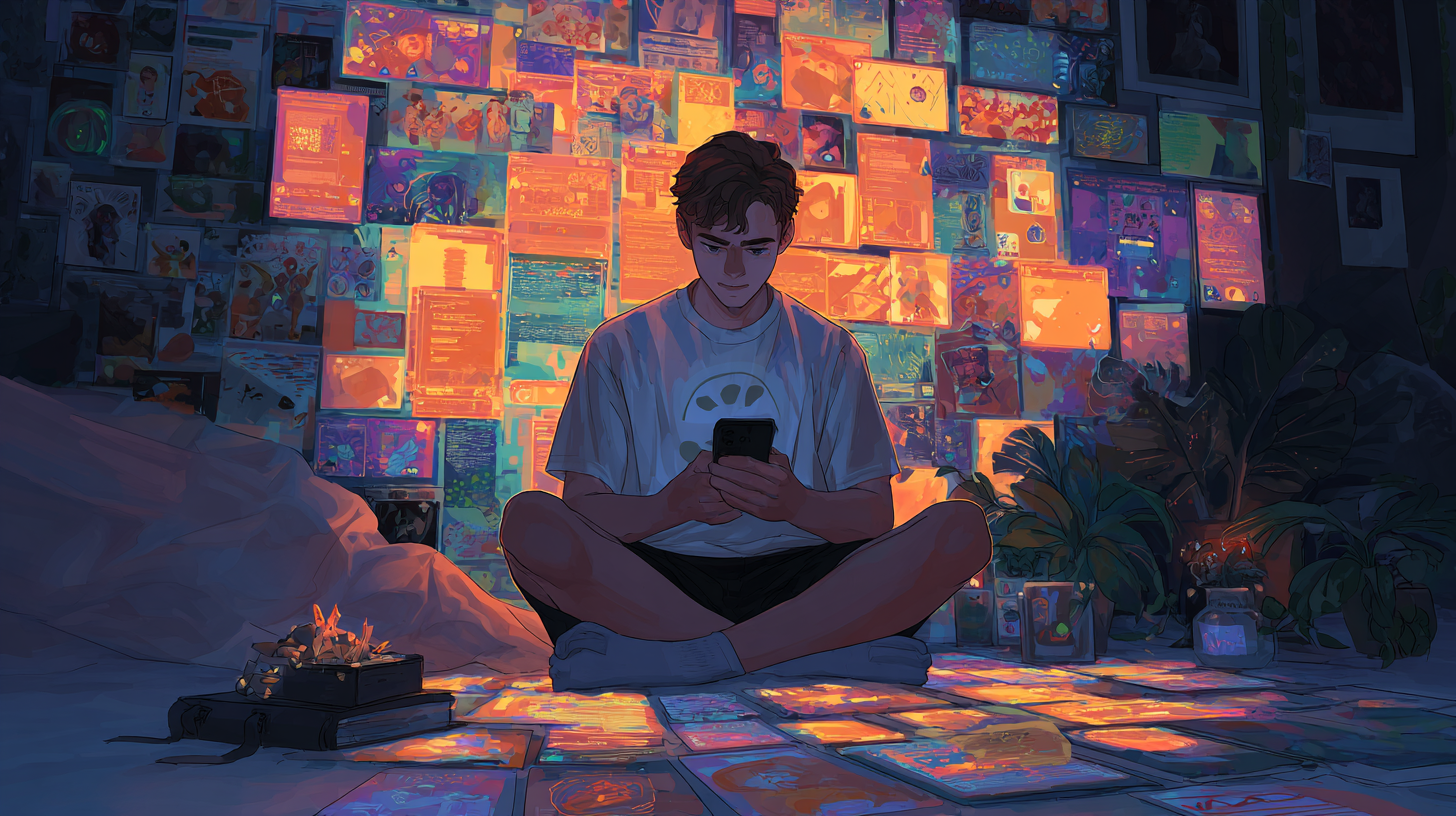
It's about choosing the corners of the internet that still have a pulse - and protecting them fiercely. Because those private spaces are already under attack.
The Internet Isn't Dying. But Something Human Is.
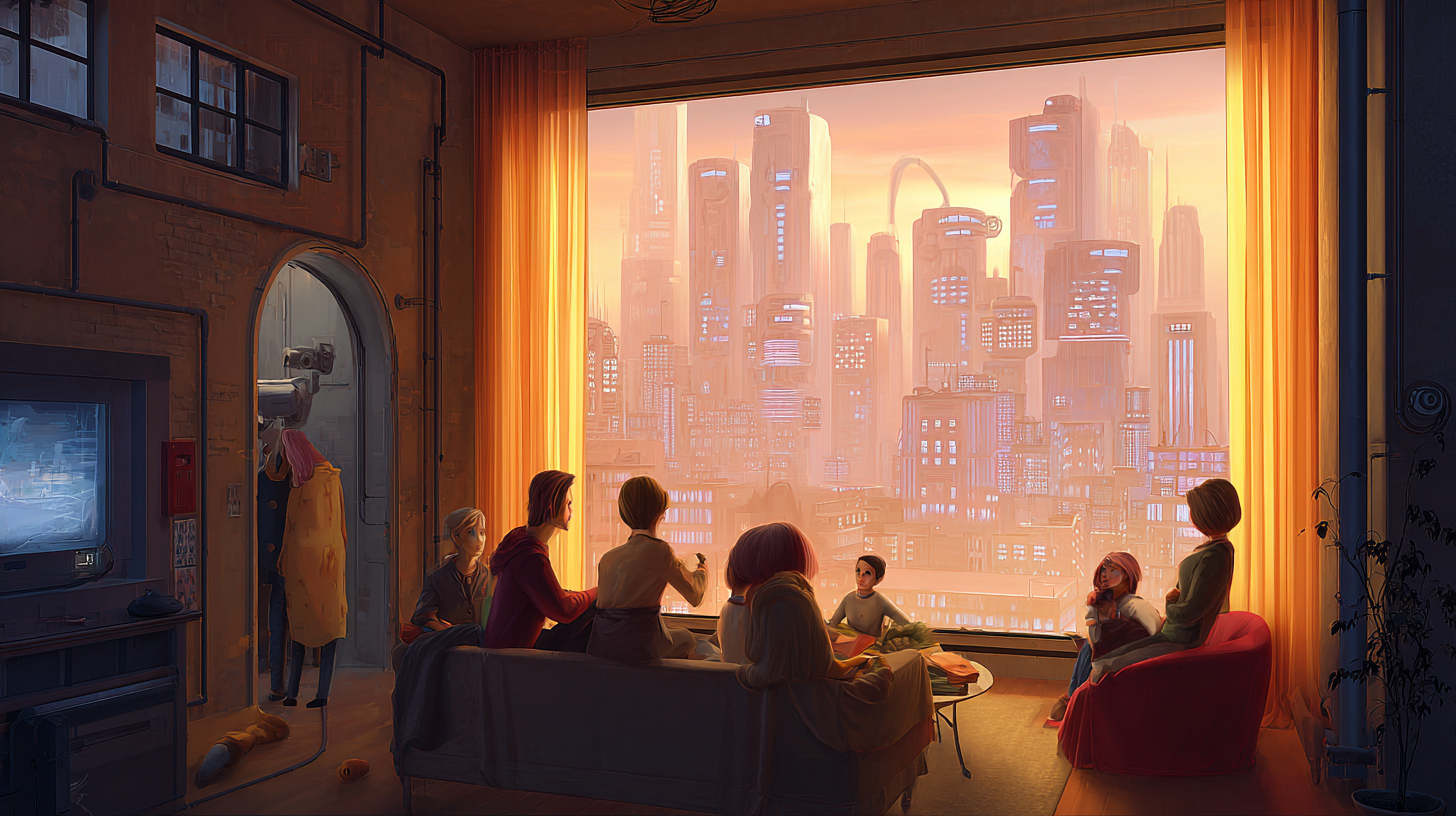
The truth is, the internet isn't collapsing. It's expanding, optimizing, automating - humming along more efficiently than ever. The cables are intact. The servers are fine. The feeds keep refreshing.
But metrics can't measure aliveness. Traffic reports don't tell you whether anyone is really there. And that's the quiet shift we're living through: not the death of the internet, but the end of an era when stepping online meant stepping into a crowd of other minds. When the ambient presence of humanity was the default, not the exception.
The bots didn't kill the internet. They just made it harder for us to find each other. But here's the part worth holding onto: we're not powerless. The human web isn't gone - it's just shrinking into the corners where people still talk to each other with intention, texture, vulnerability, and care. The future won't belong to the loudest spaces or the most optimized ones. It will belong to the ones that still feel inhabited.
So maybe the real question isn't "Is the internet dying?" Maybe it's: Can we keep the human part alive? And the answer is quieter than you might expect: We already know how. We've been doing it all along - every time we choose presence over performance, connection over content, and each other over the endless, automated noise.
The internet may be hollowing out. But the people in it don't have to.
